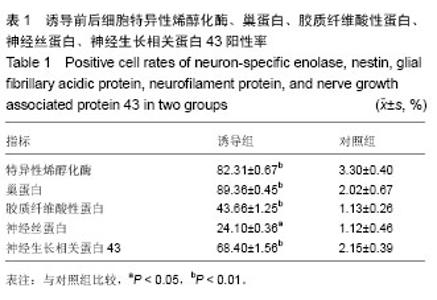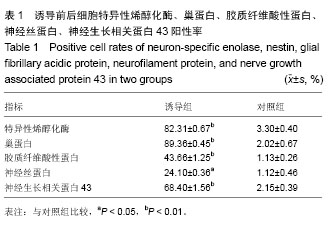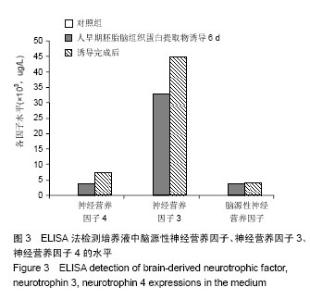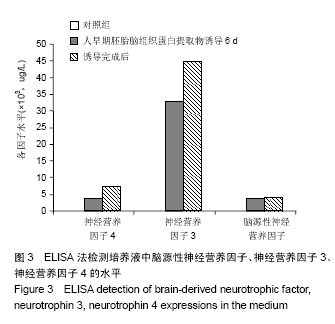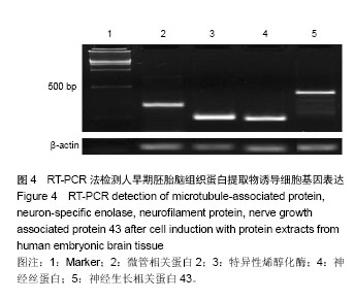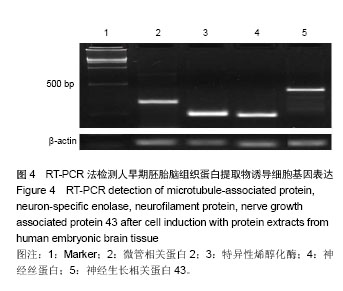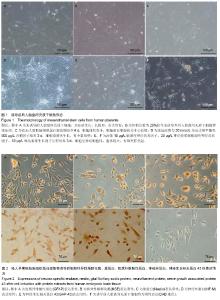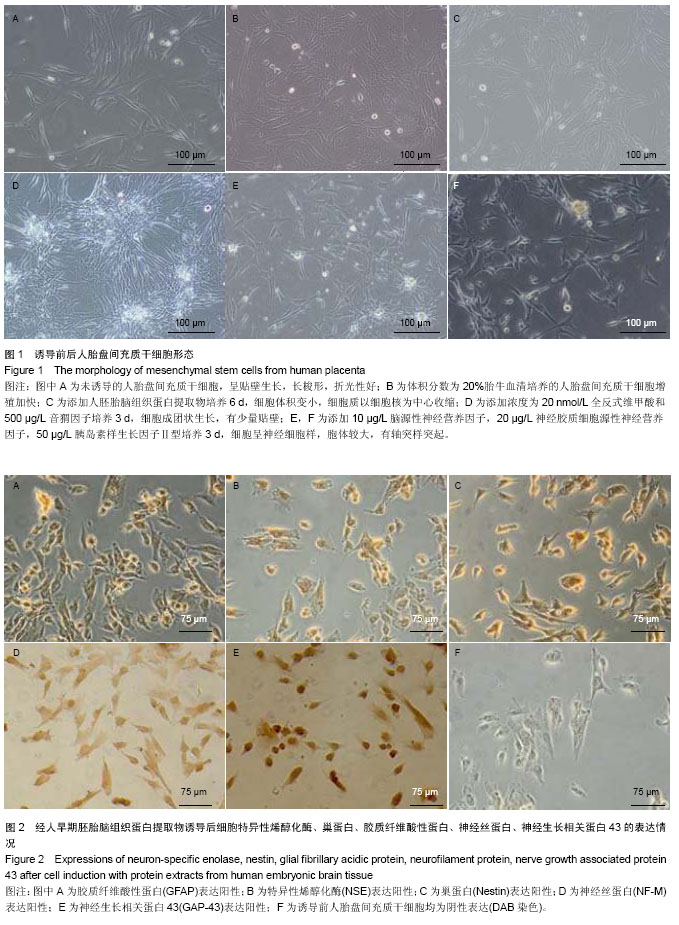| [1] Hu SL, Luo HS, Li JT,et al.Functional recovery in acute traumatic spinal cord injury after transplantation of human umbilical cord mesenchymal stem cells.Crit Care Med. 2010; 38(11):2181-2189.
[2] Miki T, Marongiu F, Ellis EC,et al.Production of hepatocyte-like cells from human amnion.Methods Mol Biol. 2009;481: 155-168.
[3] Zhu Y, Yang Y, Zhang Y,et al.Placental mesenchymal stem cells of fetal and maternal origins demonstrate different therapeutic potentials.Stem Cell Res Ther. 2014;5(2):48.
[4] Politis M, Lindvall O.Clinical application of stem cell therapy in Parkinson's disease.BMC Med. 2012;10:1-7.
[5] Chen L, He DM, Zhang Y.The differentiation of human placenta-derived mesenchymal stem cells into dopaminergic cells in vitro.Cell Mol Biol Lett. 2009;14(3):528-536.
[6] Trzaska KA, Rameshwar P.Dopaminergic neuronal differentiation protocol for human mesenchymal stem cells. Methods Mol Biol. 2011;698:295-303.
[7] Yang J, Wang X, Wang Y,et al.Dopaminergic neuronal conversion from adult rat skeletal muscle-derived stem cells in vitro.Neurochem Res. 2012;37(9):1982-1992.
[8] 王立斌,刘婷,马晓娜,等.人胎盘间充质干细胞的分离与鉴定[J].宁夏医科大学学报,2010,32(8):864-866.
[9] 张睿婷,韩之波,王涛,等.人胎盘绒毛膜来源间充质干细胞的生物学特性[J].中国组织工程研究与临床康复,2011,15(10): 1823-1826.
[10] Wang L, Yang Y, Zhu Y,et al.Characterization of placenta- derived mesenchymal stem cells cultured in autologous human cord blood serum.Mol Med Rep. 2012;6(4):760-766.
[11] Fukuchi Y, Nakajima H, Sugiyama D,et al.Human placenta-derived cells have mesenchymal stem/progenitor cell potential.Stem Cells. 2004;22(5):649-658.
[12] Bailo M, Soncini M, Vertua E,et al.Engraftment potential of human amnion and chorion cells derived from term placenta. Transplantation. 2004;78(10):1439-1448.
[13] Woodbury D, Reynolds K, Black IB.Adult bone marrow stromal stem cells express germline, ectodermal, endodermal, and mesodermal genes prior to neurogenesis.J Neurosci Res. 2002;69(6):908-917.
[14] Moviglia GA, Varela G, Gaeta CA,et al.Autoreactive T cells induce in vitro BM mesenchymal stem cell transdifferentiation to neural stem cells.Cytotherapy. 2006;8(3):196-201.
[15] Kang SK, Lee DH, Bae YC,et al.Improvement of neurological deficits by intracerebral transplantation of human adipose tissue-derived stromal cells after cerebral ischemia in rats. Exp Neurol. 2003;183(2):355-366.
[16] 谷艳娇,李博,高志安.大鼠骨髓间充质干细胞体外向神经元样细胞的诱导[J].中国组织工程研究与临床康复,2010,14(14): 2481-2484.
[17] Sortwell CE, Daley BF, Pitzer MR,et al.Oligodendrocyte-type 2 astrocyte-derived trophic factors increase survival of developing dopamine neurons through the inhibition of apoptotic cell death.J Comp Neurol. 2000;426(1):143-153. |
